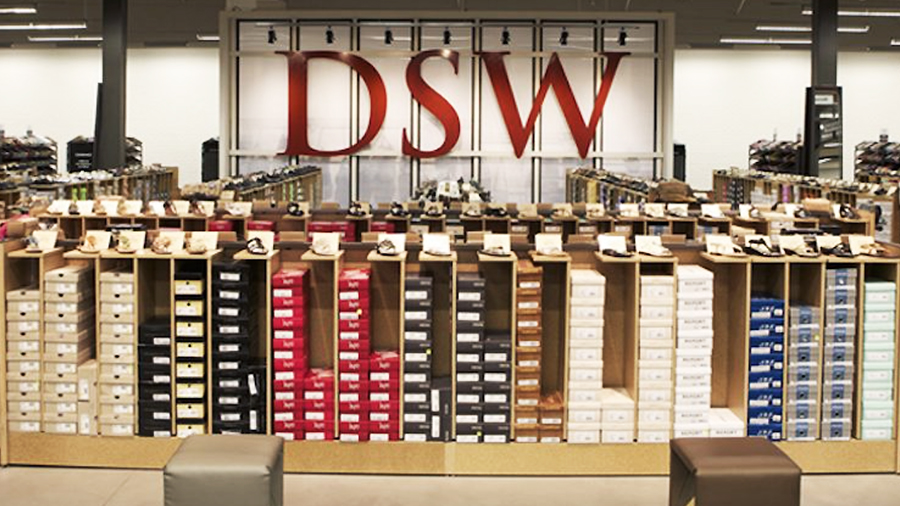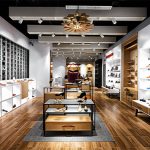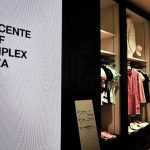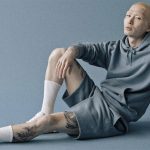Designer Brands, Inc. (DBI) lifted its EPS outlook for the year as DSW continues to benefit from shifting its mix “narrower and deeper” with its largest brands and emphasizing in-house brands. DSW has also had a strong start to the back-to-school season thanks to an increased assortment of athletic and kid’s products.
DBI’s owned brands include Vince Camuto, Crown Vintage, Jessica Simpson, JLO Jennifer Lopez, Mix No. 6, Lucky Brand, and Kelly & Katie, with some representing licensing arrangements.
In the athletic space, Designer Brands formed a partnership this year with Authentic Brands Group (ABG) to secure guaranteed quantities of Reebok products. In July, DBI secured licensing and distribution rights to Le Tigre, focusing on athletic sneakers and slides.
In the quarter that ended July 30, net sales increased 5.1 percent to $859.3 million, ahead of the consensus estimate of $835.92 million. The growth came on top of gains of 67 percent in the year-ago quarter.
For the second quarter, total comps were up 6.2 percent on top of a robust 84.9 percent comp last year. Within this growth, owned brands were up 40 percent in the quarter compared to last year, with notable growth in both direct-to-consumer and wholesale channels.
U.S. Retail sales grew 1.5 percent in the period to $734.1 million. U.S. retail comps were up 2.7 percent for the second quarter on top of a 94.3 percent surge last year. Canada Retail sales were up 35.9 percent to $78.3 million. Comps in Canada increased 47.3 percent in the quarter versus 14.6 percent in the prior year. Canada had a slower recovery in 2021 than the U.S. and was up against easier comparisons.
In the Brand Portfolio segment, sales were up 31.3 percent to $66.4 million.
Reported net income was $46.2 million, or 62 cents a share, up from $42.9 million, or 55 cents, a year ago. On an adjusted basis, earnings rose 6.2 percent to $46.1 million, or 62 cents a share, from $43.4 million, or 56 cents, topping the analyst consensus estimate of 52 cents.
Gross margins eroded 40 basis points to 34.4 percent.
On a conference call with analysts, Roger Rawlins, CEO, said “We are very pleased with our second quarter results and our continued momentum against our long-term plan of doubling sales of our owned brands by 2026, while maintaining sales levels of national brands as we continue to strengthen relationships with our top partners.”
Rawlins said DBI, led by DSW, is outperforming the marketplace despite the overall footwear market turning “slightly softer” in the second quarter versus the first quarter of 2022 due to the recent downturn in the macroeconomic market that has included inflation, rising interest rates and softened consumer sentiment.
Rawlins attributed Designer Brands’ success to three factors. He said, “One, we are incredibly flexible. We can lean into the brands we own and control in our direct-to-consumer channels and quickly adjust our national brand assortment to match our customer’s needs. Two, we have implemented numerous cost control initiatives that allow us to invest in the most critical areas of our business to build our brands and grow our customer base. And three, our customer base is still healthy. On average, our customers have a household income over $100,000 and are somewhat less impacted by the headwinds we are seeing in the market.”
He said DSW hadn’t seen a significant shift in the year-to-date period in consumer behavior.
Rawlins added that “still very important,” DSW has become less reliant on the seasonal business alone as in the past as it’s worked to diversify its offerings, including increasing investments in athletic, to match consumers’ demands.
“To that point, we feel we are well positioned from an inventory perspective as we move into the back half of this year,” said Rawlins. “We believe there continues to be pent-up demand for dress and seasonal products tied to social occasioning and travel. Our back-to-school business has driven demand for kids and athletic footwear, as planned. We are starting to see the return of the clearance shopper as we have strategically worked to rebuild our clearance assortment to win back this customer who hasn’t shopped with us in over a year.”
Among categories seeing increased attention, Rawlins noted that according to the NPD Group, DSW outpaced the rest of the footwear market by five percentage points in kid’s footwear in the second quarter, based on dollar sales. In athletic and sport-lifestyle, DSW dollar growth outpaced the rest of the market by 12 percentage points in the second quarter, according to NPD.
Rawlins added, “We anticipate this momentum will continue in the back half of the year.”
Rawlins said that among DBI’s owned brands, sales grew 40 percent compared to the same period last year, representing 23 percent of overall revenue compared to 17 percent a year ago. Owned brands rose 45 percent at DSW and its other retail operations while expanding 25 percent on a wholesale basis. Rawlins said, “We are extremely pleased with these results and remain on track to deliver our commitment of doubling the sales of our owned brands by 2026.”
He said that based on a combination of market and internal data, six of DBI’s owned brands—Kelly & Katie, Vince Camuto, Jessica Simpson, Mix No. 6, Crown Vintage, and Lucky—ranked within the Top 50 brands in the fashion footwear industry based on the sales of each of those brands in the second quarter. Kelly & Katie was among the Top 10 fashion footwear brands, and Vince Camuto was in the Top 20.
On national brands, Rawlins said DSW continues to focus on “going narrower and deeper” with top partners. In the quarter, the Top 50 brands represented 80 percent of DSW’s sales and grew 20 percent over the second quarter of 2021.
Doug Howe, the recently-appointed president of DSW, said that rather than “narrower and deeper,” he likens the push to emphasize national brands more to “amplifying and editing.”
“We are prioritizing growing with the top brands that our customers demand across the board,” said Howe. “We continue to evolve our assortment and the breadth and depth of the top brands we offer our customers. In doing so, we have seen meaningful growth, upwards of 20 percent, with many of these top brands over the past year.”
The national brand push is supported by better in-store placement for key brands, including testing shop-in-shops in existing store formats and at its new Warehouse Reimagined store in Hedwig, TX.
Howe also said DSW has gained market share over the past two back-to-school seasons by shifting its assortment to be more inclusive of athletic and kids products and “have further refined our approach this year to maximize the potential of this time frame.”
He noted that even with Nike exiting the DSW chain at the end of last year, kid’s athletic grew this year compared to 2021. Howe said, “We are gaining market share, we are growing, and we have no intention of taking our foot off the gas.”
Howe also said the DSW chain continues to benefit from strong customer retention. As of the end of July, DSW engagement with consumers was up 9 percent compared to the prior year, driven by strong reacquisition of pre-pandemic customers and the addition of new customers. He said this had been partially driven by a focus on regaining DSW’s clearance customers that reduced shopping the chain during the pandemic. Howe said, “We have reacquired approximately two million clearance customers year-to-date, resulting in clearance sales being up 5 percent in the quarter compared to being down 5 percent in the first quarter of this year, a showcase of strong sequential growth.”
Howe noted that DSW’s retail inventories are up 33 percent on a square footage basis at the quarter’s compared to the second quarter of 2021, partly because the year-ago period featured “extraordinary light inventory” due to supply chain challenges as well as efforts by buyers to bring in receipts early this year to support the back-to-school and early-fall selling.
Howe said, “Compared to 2019, a more normalized period, our inventory is up only 8 percent on a square foot basis; this also positions us well for the demand peak period of Sep-tober, and we have planned year-over-year inventory levels to further normalize as we move through the back half of the year.”
Looking ahead, full-year 2022 diluted EPS guidance was raised to a range of $2.05 to $2.15 from $1.90 to $2.00. Same-store sales are still expected to climb in the mid-single-digits.
Photo courtesy DSW Warehouse Reimagined, Hedwig, TX
















